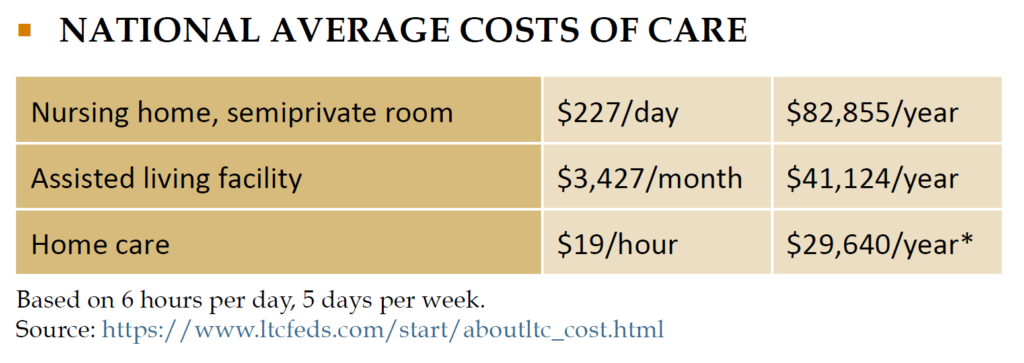Planning for senior care can be complicated and intimidating. Here are a few tips to help make the process clear and straightforward.
Over the years, we have seen clients progress through multiple life stages. Many of you joined us before Gary Furukawa, our founder, even had children! Each season, we stand by our clients as we work to tilt the financial world in their favor. For some time, most of our clients were planning for retirement. Now, many of these same clients are enjoying that planned retirement while holding the hands of parents who are in their twilight years. Anyone who has been in the role of caregiver can attest to the many challenges and complexities of the role. In addition to managing doctor’s appointments, medications, housing needs, and the emotional side of caregiving, the financial aspect can be daunting.
In preparation for the elder years, we have compiled a few planning tips you may find helpful:
1. Start The Conversation Now
Money can often be a difficult topic for many families. If there is any chance you could become a caregiver for a parent or family member, start to learn about their financial situation. Furthermore, work to identify and educate someone you trust, to be your own advocate should you need someone in the future. Organize financial information so that insurance policies, statements, and legal documents are identifiable. We also recommend keeping a consolidated contact list of relevant professionals.
2. Call your Client Advisor
Ask him or her to run a financial plan projection before care is needed. Know your asset levels and the ability to pay for care. Become familiar with all income streams, verify that assets and beneficiaries are titled properly, and that planning has been done to pay for the costs of care. Retirement savings and investment strategies should mesh with elder care planning to ensure there is enough money for your whole life.
3. Be Prepared For Long Term Care Costs
Most of us will eventually incur long-term care costs as we age. The old saying, “Hope for the best, but plan for the worst” holds true, especially for long-term care (LTC) planning. According to a U.S. Department of Health and Human Services study, “Seventy percent of Americans who reach the age of 65 will need some form of LTC in their lives for an average of three years.”1

4. We will coordinate with an appropriate attorney to review your situation
It is important to work with a professional who is well versed in state-specific elder care laws. In addition to making sure legal documents such as a will, power of attorney, health care proxy and living wills are up to date, they can be helpful in navigating the state services available.
5. When you need care, we will help you understand the financial impact
Which assets need to be liquidated to pay for care, the order in which this should happen and how long your assets are estimated to last in various situations. If it is determined that one may need Medicaid assistance to pay for care, strategies may be put in place to assist in preserving assets and/or income.
We encourage you to contact a Client Advisor with any questions.
1 U.S. Department of Health & Human Services. National Clearinghouse for Long-Term Care Information. https://www.longtermcare.gov/LTC/Main_Site/index.aspx. Accessed April 10, 2012.
Important Disclosures: This article contains general information, opinions and market commentary and is only a summary of certain issues and events that we believe might be of interest generally. Nothing in this article is intended to provide, and you should not rely on it for, accounting, legal, tax or investment advice or recommendations. We are not making any specific recommendations regarding any security or investment or wealth management strategy, and you should not make any decisions based on the information in this article. While we believe the information in this article is reliable, we do not make any representation or warranty concerning the accuracy of any data in this article and we disclaim any liability arising out of your use of, or reliance on, such information. The information and opinions in this article are subject to change without notice, and we do not undertake any responsibility to update any information herein or advise you of any change in such information in the future. This article speaks only as of the date indicated. Past performance of any investment or wealth management strategy or program is not a reliable indicator of future results. Portions of this article constitute “forward thinking statements” and are subject to a number of significant to a number of significant risks and uncertainties. Any such forward-looking statements should not be relied upon as predictions of future events or results.
